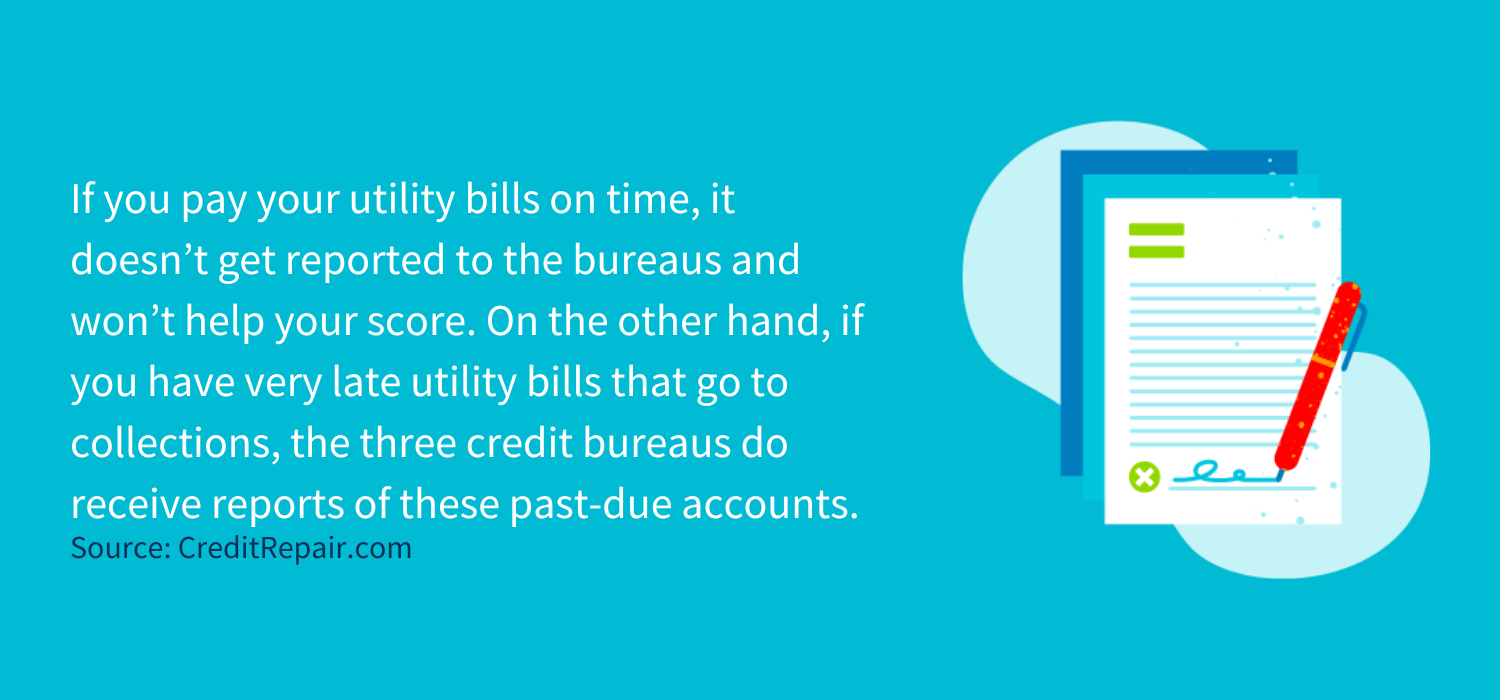
Disclosure regarding our editorial content standards.
In 2016 FICO made a significant change to one of their scoring models—that is non-traditional types of credit are now considered when calculating your score, like utility and phone bills. Millions of consumers cannot be scored through traditional means, so this change is very helpful to them and the lenders they work with.
So what do you need to know about the effect utilities and bills have on your credit? Get the facts about how accounts like gas and electric can help or hurt your credit and learn what to do about it.
Are utility bills reported to credit bureaus?

If you pay your utility bills on time, it doesn’t get reported to the bureaus and won’t help your score. On the other hand, if you have very late utility bills that go to collections, the three credit bureaus do receive reports of these past-due accounts.
The Consumer Financial Protection Bureau notes, “Most utility companies don’t report to the big three consumer reporting agencies (CRAs) whether or how regularly you pay on time. However, if you fail to pay a bill and it is sent to a collection agency, that debt could show up on your credit reports from any of the big three CRAs.”
What is FICO Score XD
As of the change in 2016, FICO estimated 15 million more consumers could be assessed with a new scoring system, FICO Score XD. This means banks could get new customers.
FICO first performed a “retro” analysis, similar to the type of analysis that banks perform when they decide whether or not to implement a new credit-scoring model. They looked at past clients, scored those clients with the new system, and saw how their portfolio performed.
FICO looked at credit card applications of more than 2.5 million consumers submitted between 2011 and 2013. 55 to 60 percent of these credit card applicants could be scored using the new model, in contrast to the 33 percent rate FICO had initially estimated. Of this percentage, 35 to 50 percent of these credit card applicants would score above 620, the minimum threshold some credit card issuers require for approval.
How can a utility or rent bill help your credit?
You may see a credit score increase if you sign up for programs that help your utilities and rent bills get reported to the credit bureaus and pay your bills on time, in addition to lenders using FICO Score XD. Those services work best for people who have scores below 680 or limited credit history.
Can a utility bill hurt your credit?
A late utility bill can hurt your credit if it goes to collections. Although it varies by utility company and location, many states require utility companies to wait at least 30 days after a late payment to close your account and sell the debt to a collection agency. The debt will be reported as delinquent to the three credit bureaus, which will hurt your credit.
Your credit can also drop if the utility company charges off your account. In this case, they mark it as uncollectible with the credit bureaus, which can make it difficult to get future loans and utility accounts. This type of derogatory mark can stay on your credit report for up to 7 years.
Although utility accounts in good standing don’t contribute to good credit, your credit will drop if you have late payments, collections or charge-offs. Contact the team at CreditRepair.com today to find out how we can help you improve a damaged credit score.
Note: The information provided on CreditRepair.com does not, and is not intended to, act as legal, financial or credit advice; instead, it is for general informational purposes only.
Questions about credit repair?
Chat with an expert: 1-800-255-0263






